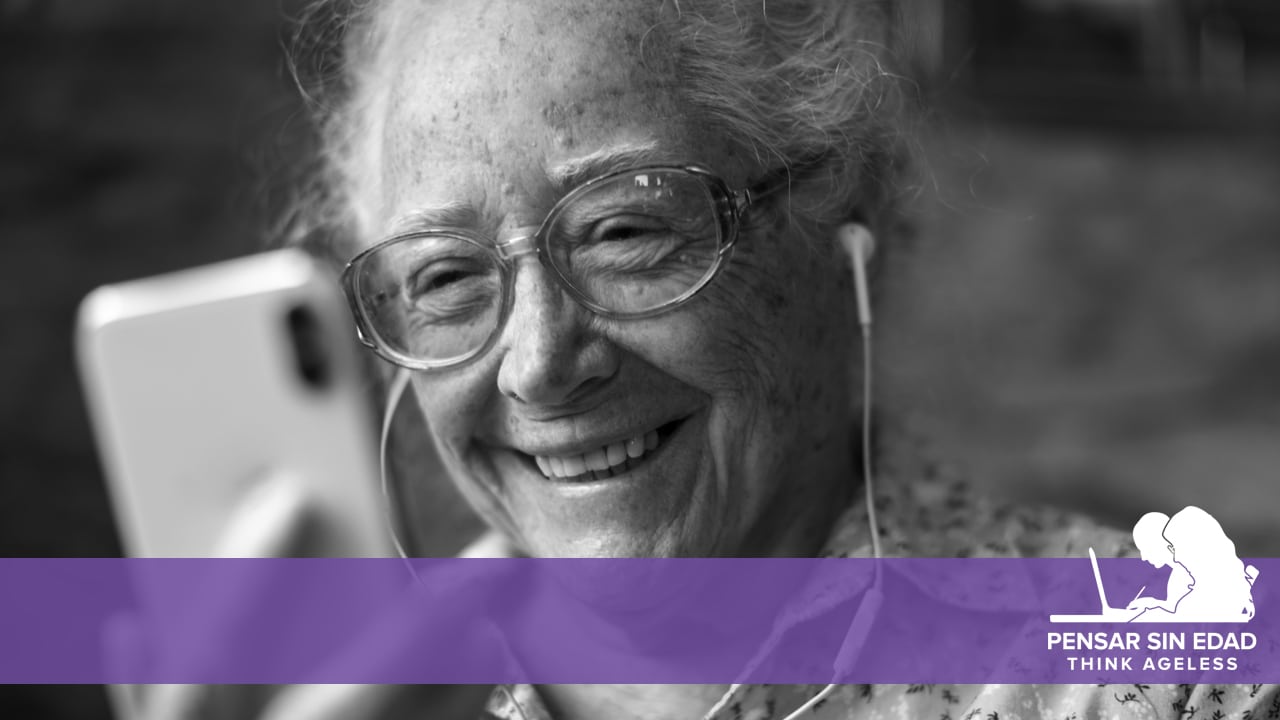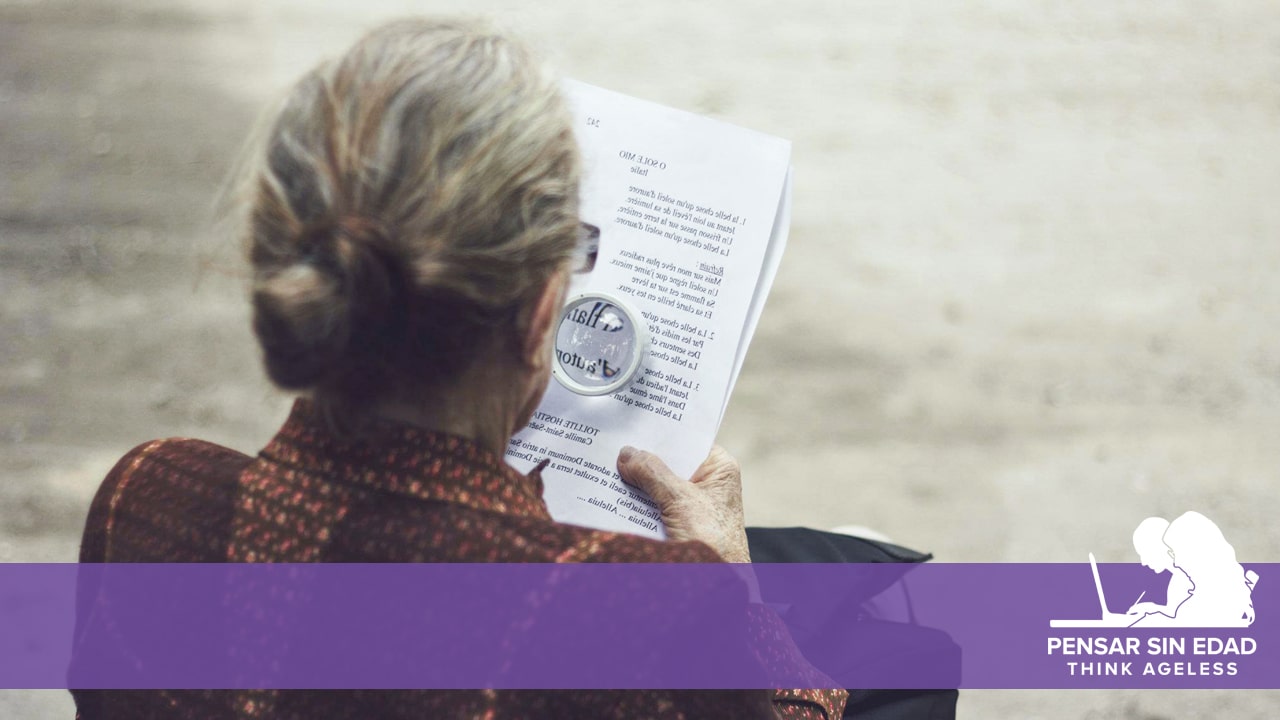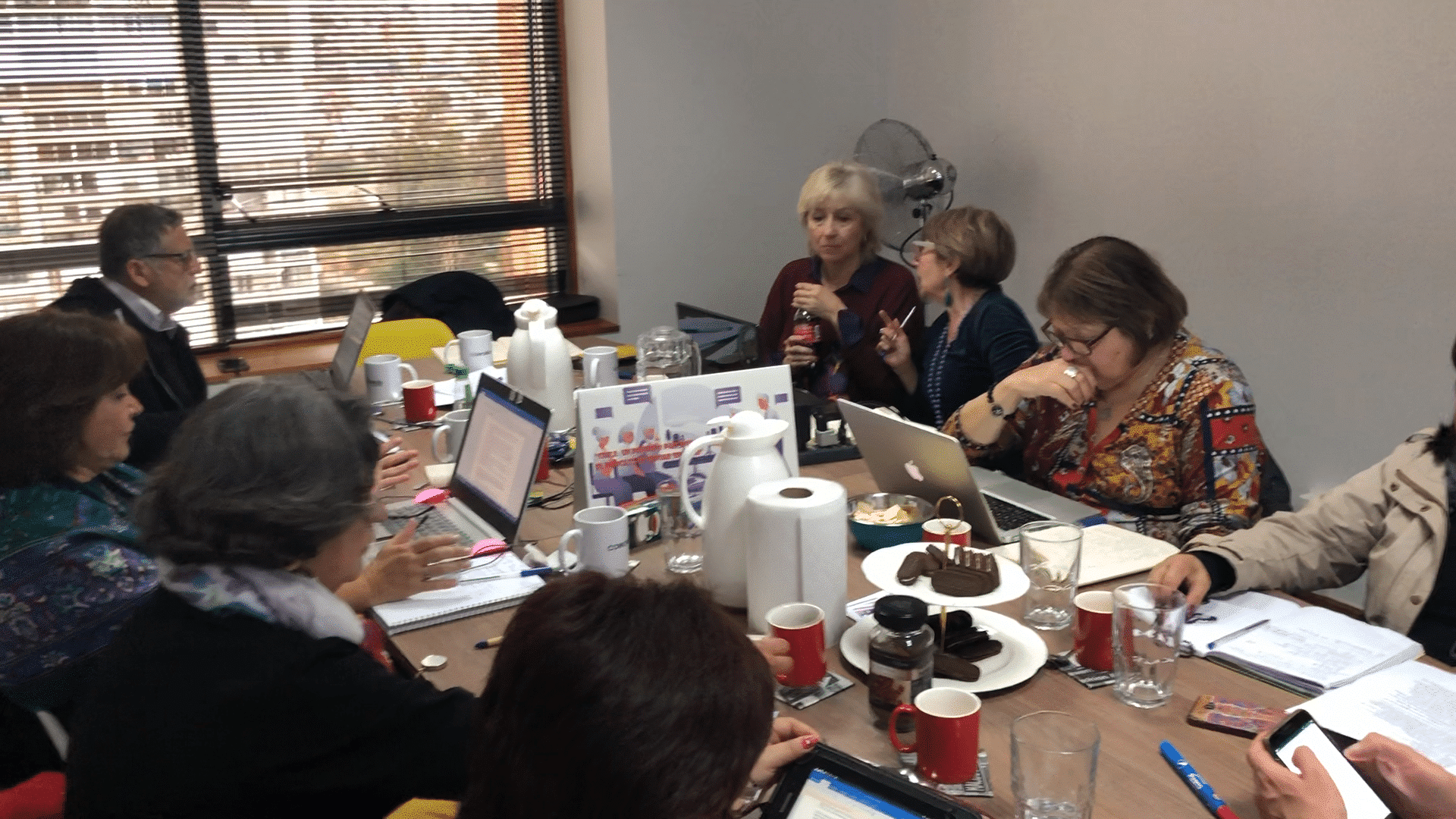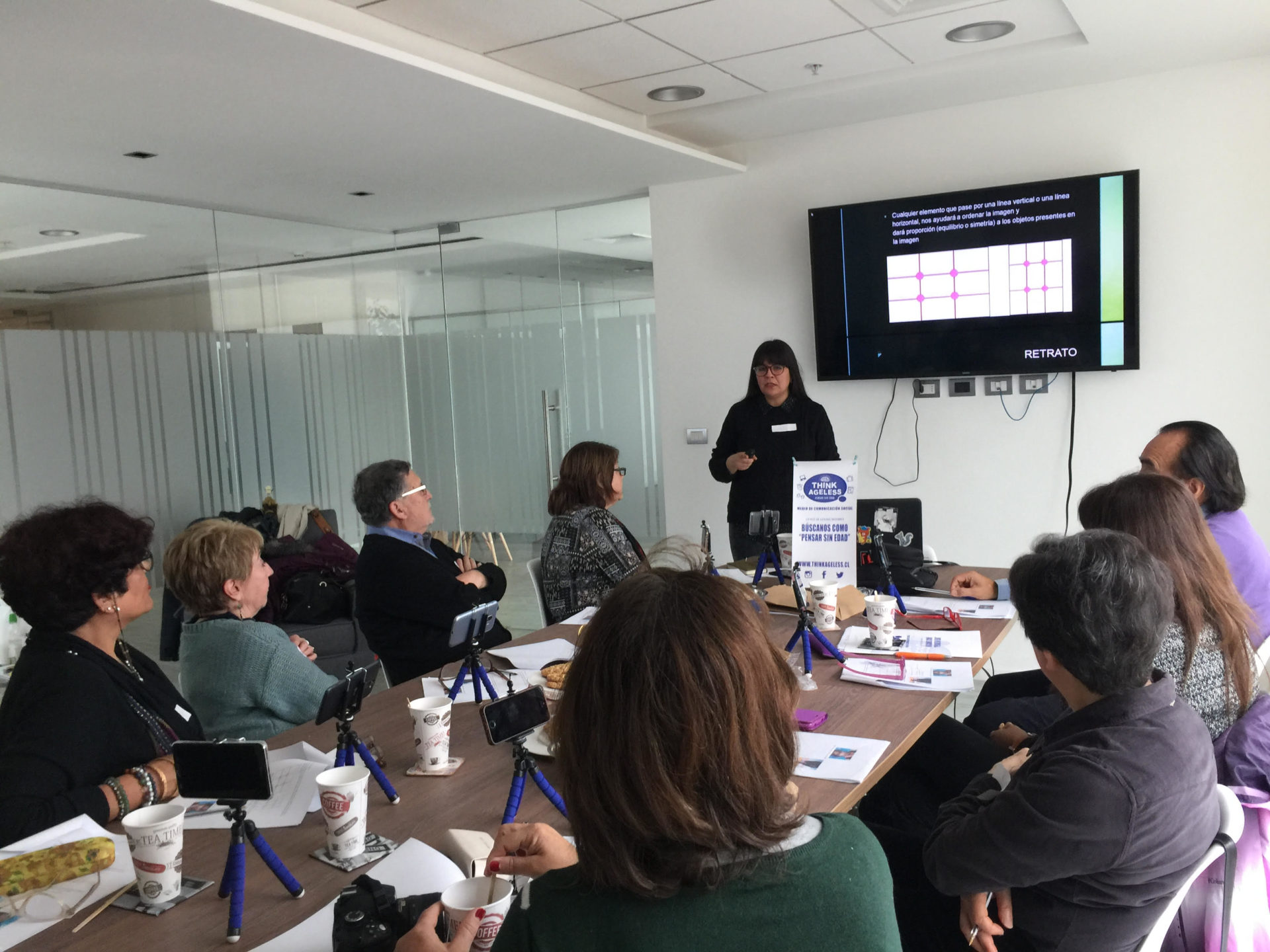Chile (Valparaíso )
A unique media project in Valparaíso, Chile, is challenging stereotypes in an often ageist world of social media, podcasts, blogs and vlogs – by offering an age-friendly alternative to dominant mainstream narratives.
“In our podcast series, we want to showcase the problems faced by older people – but also our hopes.”
Written, produced and created by older adults who have been trained to develop their digital communication skills, Pensar Sin Edad (Think Ageless) is an online magazine that showcases an alternative, vibrant side of ageing – with unique articles, videos, podcasts and social media content that encourage intergenerational inclusion.

Think: positive and active ageing, human rights, health and nutrition, relationships, intimacy, intergenerational barriers, digital inclusion, caring for parents, self-care and personal growth.
“I am who I am! I’m delighted to have lived and I’m eager to continue discovering this new stage.”
Founded in 2017 by thirty-something sociologist and gerontologist Javiera Paz Sanhueza Chamorro, the idea was originally to counter the poor job the mainstream media were doing in representing the culture of older people. “It was also important to spread a more diverse message to ordinary users of social media – people of all ages – who need to challenge the stereotypes they hold with more genuine images of ageing,” she told us.

The first challenge was the digital divide. In Chile, many older people have never used information and communication technologies, and struggle with something like blogging. Fortunately, the ‘Senior Bloggers’ (as they call themselves) have some experience from their professional lives. “But there was still a lot of training to do,” Javiera explains. “The internet and social networks are designed with a younger user in mind, so there is age discrimination built into them.”

The platform helps to change lives through skills development and education, but also gives the over-60s opportunities to create new diverse narratives about active ageing.
With thought pieces like ‘The story of a widow who beat loneliness’ and ‘Stories from a grandmother of the ‘silent generation‘, Javiera hopes to always inform and inspire – even in tempestuous times. “Our country has been going through a very intense social and political time since October 2019,” she adds. “Although there is a great deal of instability, this offers an opportunity to highlight the most hoped for cultural changes for older people in Chile.” However, the main challenge is funding, so that they can train more bloggers, have a permanent space and so that Javiera can give the project more time.

We asked the Senior Bloggers (who are from 61 to 76 years old) what the project means to them. This is what they had to say:
Your role is not to ‘wait for the hearse’, as we say in Latin America! An active mind gives new meaning to this stage of adult life.
When we talk about ‘active ageing’... it usually conjures up ideas about physical activity, healthy eating or things that can prevent physical deterioration or chronic illness. But being part of a meaningful life project has a direct positive impact on health and emotional wellbeing.
We want to challenge stereotypes that lead to discrimination. Ageism marginalises and deprives older people of the opportunity to be part of society and enjoy their basic rights.
Ageist language takes away the agency of older people. The media tends to concentrate on the vulnerability of older people and the social costs of an ageing population – treating us as being in need of protection or help.
We are putting pressure on media organisations to totally eradicate bad practice. On radio and TV, it ’s normal to hear sad background music whenever older themes are on, designed to provoke the audience’s pity.
In Chile, the problem of the age pay gap is serious. The minimum wage for people over the age of 65 is 25% lower than for the under-65s.
Our cities are also a problem. They are not age-friendly; with unsafe or uncomfortable public transport, broken sidewalks where we might fall, traffic lights that don’t give us time to cross the road safely, a lack of street furniture where we can rest, public buildings without ramps for wheelchair access. These issues mean that many of us leave our houses less and participate less in society. It’s a very serious situation and one that younger people often are not aware of.
A lot has to happen to achieve the cultural change necessary for intergenerational inclusion. There are no educational programmes which include older adults, nor are there economic resources for academic development, so we can support society. People don’t generally think about the importance of creating opportunities and purpose when you have reached so-called ‘old age’.
We are living in the 21st century information society. Our hope is to face the challenges that this poses: our relationships with the younger generation, our own digital inclusion, caring for our parents in their ‘fourth age’. Our dream is to meet all of these challenges positively, and be able to focus on self-care and personal growth.
Our editorial value is pluralism and our editorial focus is on active ageing and human rights. We are starting to explore more opinion pieces, reacting to current affairs and news from our position as older adults.
Over the years we’ve become a very diverse team of male and female bloggers. Through working together we’ve formed deep friendships and a happy collaborative team.
For some of us, Pensar Sin Edad has become our life’s project. We dedicate hours each week to researching, writing, making videos, learning about new technologies and social channels.
This is fulfilling a social role. Most people of our age take part in other kinds of educational, creative or recreational activities; crafts or dance classes or activities aimed at cognitive stimulation are very common. But having the possibility of communicating is a different thing,
We believe we are doing something important. Sharing our articles with others online allows us to share our vision, values, experiences and advice on positive ageing.
It’s a wonderful feeling… hearing we’ve helped others with our writing or our video work. Although the truth is that simply having a space to express ourselves freely in our own voices is a great source of satisfaction.
AtlasAction: Think ageless! Sign up for the Pensar Sin Edad podcasts, videos and news below:
Project leader
Javiera Paz Sanhueza Chamorro
Partners
This project has been selected as part of AgeFutures, a new storytelling project that maps the innovations transforming the lives of older people, and the designers, entrepreneurs and community leaders – across all generations – behind them. Atlas of the Future is excited to partner with Independent Age.
Support the Atlas
We want the Atlas of the Future media platform and our event to be available to everybody, everywhere for free – always. Fancy helping us spread stories of hope and optimism to create a better tomorrow? For those able, we'd be grateful for any donation.
- Please support the Atlas here
- Thank you!






